Don't wanna be here? Send us removal request.
Text

Thanks for following and reposting! 2/9/25--and be sure to check out: BUFFR13A
251 notes
·
View notes
Text
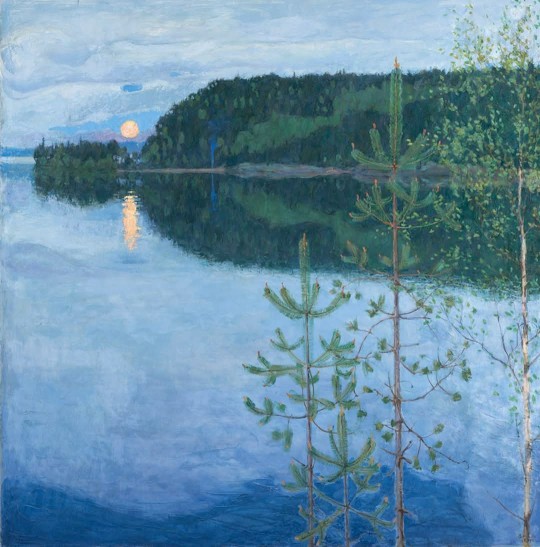
Akseli Gallen-Kallela Finnish Artist. (1865-1931)
"Spring night " 1914-
95 notes
·
View notes
Text
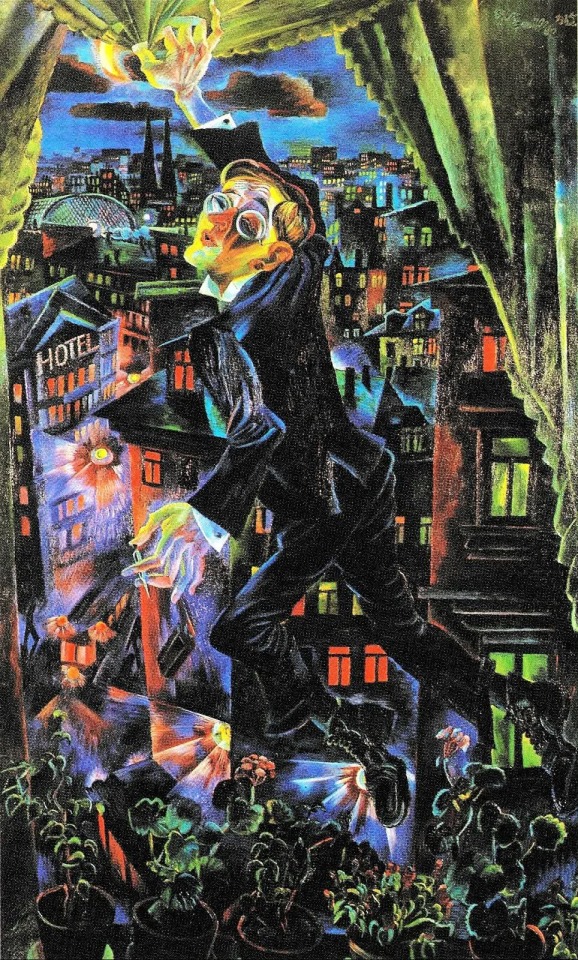
Conrad Felixmüller
German, 1897–1977
"Der Tod des Dichters Walter Rheiner (The Death of the Poet Walter Rheiner", 1925
Oil on canvas
Robert Gore Rifkind Collection
Beverly Hills, California 🌃
Having cultivated a drug habit in order to avoid conscription at the beginning of the First World War, the expressionist poet Walter Rheiner, whose novella Kokain, illustrated by Conrad Felixmüller, had been well received in 1918, took a fatal overdose in his cheap rented apartment in Berlin in June 1925.
War was over (for the time being) and expressionism looked increasingly outdated. A new generation of painters, photographers and architects, who had survived or avoided the murder in the trenches, turned away from utopian ideals. Instead, artists such as Otto Dix, George Grosz and Christian Schad revelled in capturing life, away from the mainstream, realistically and honestly.
The Dresden born painter Conrad Felixmüller became part of this new movement, which was dubbed Neue Sachlichkeit (New Objectivity) a few weeks after Rheiner's death. But to paint an obituary to his poet friend, the 28 year-old revisited the idiom of the expressionist Brücke artists of his home town. Felixmüller depicts the metropolis of Berlin as a labyrinth of angular planes, with Cubist influences. The foreboding confusion of edifices and thrusting trains is contrasted with the warm lights in the windows and the curiously homely net curtains and pots of geraniums framing the dying writer, who holds the fatal syringe delicately between his fingers. The spots of luminous or garish colour add to the dreamlike quality of the scene. Is the poet falling or is he flying? Is it pain or bliss expressed in his face?
– Christoph & Charlotte Kreutzmüller
24 notes
·
View notes
Text
55 notes
·
View notes
Photo
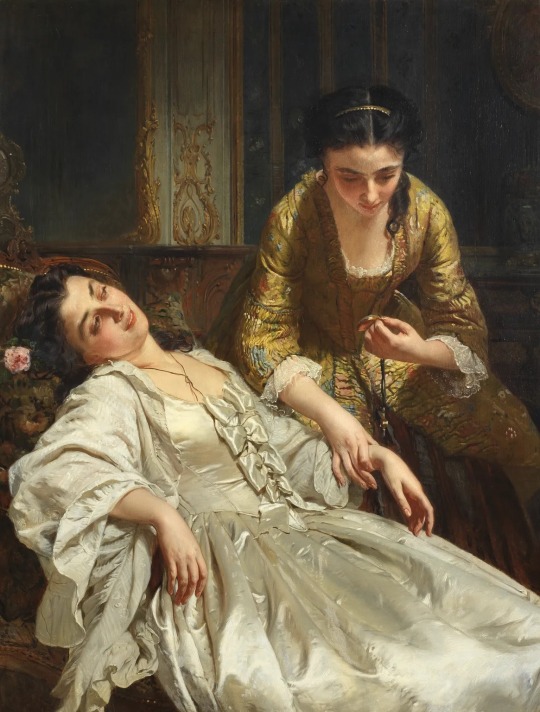
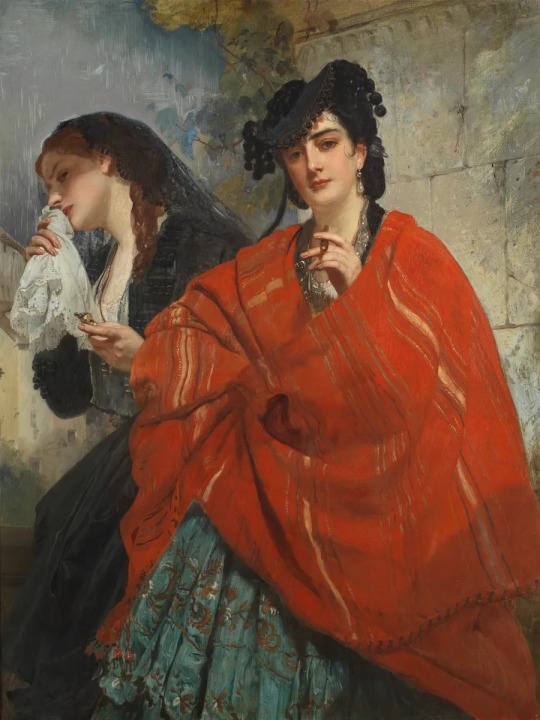
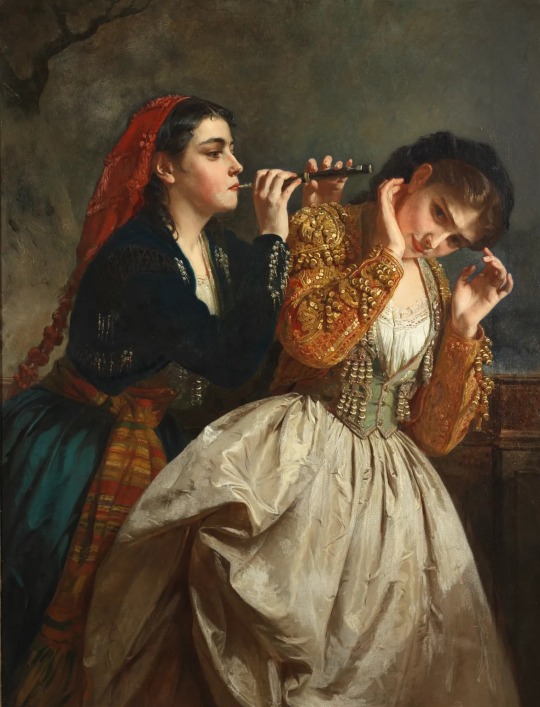
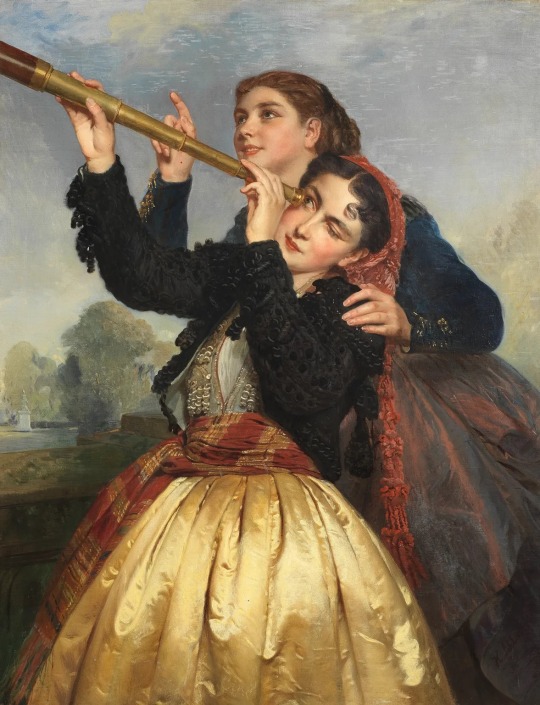
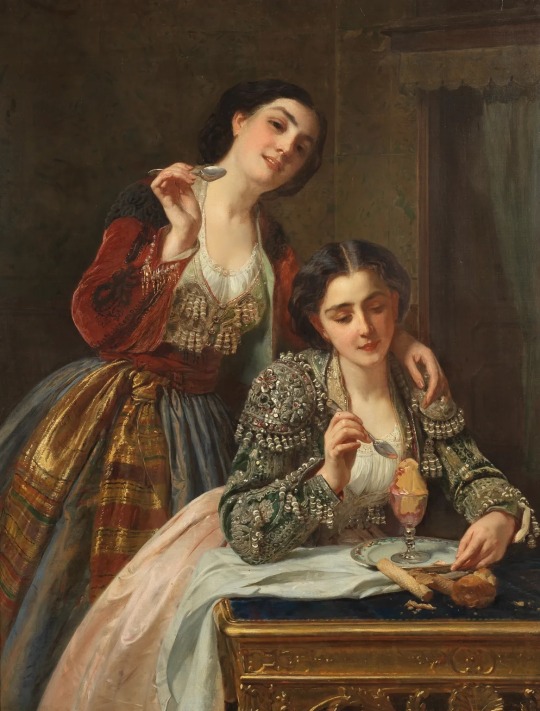
The Five Senses by Henri Guillaume Schlesinger (French, 1814-1893)
13K notes
·
View notes










